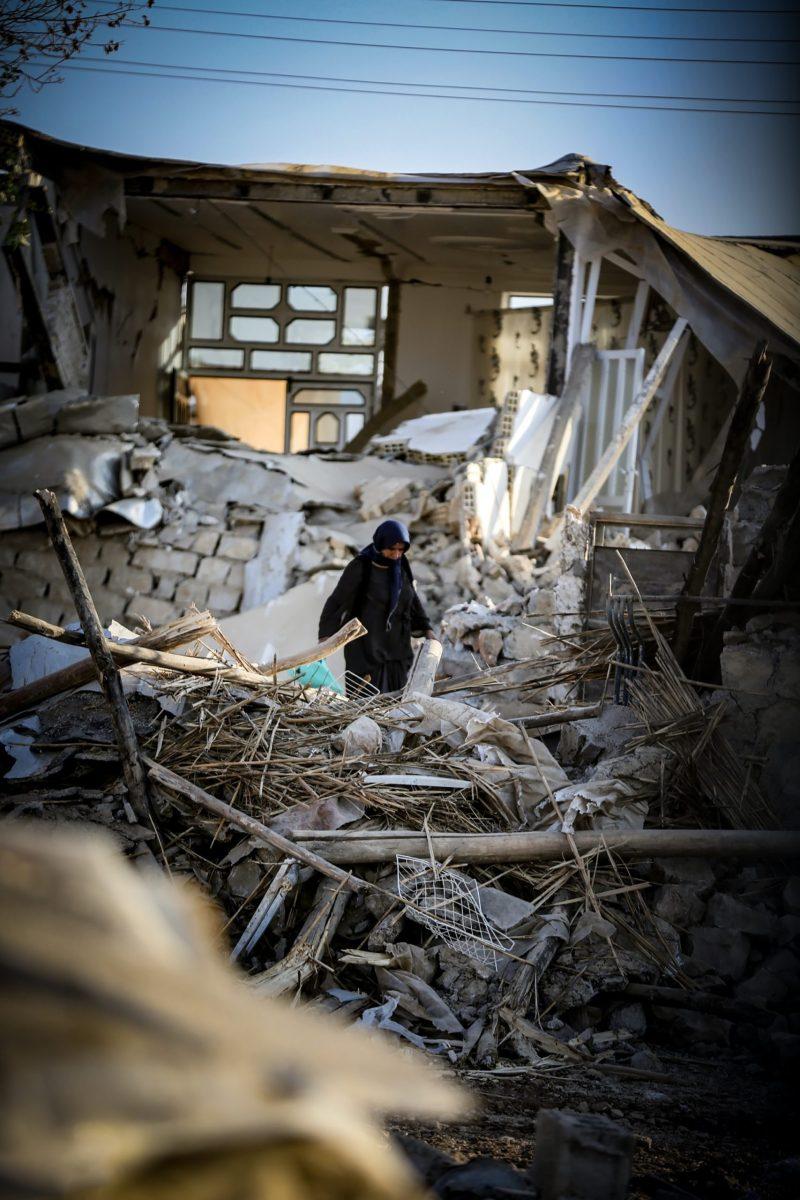There is an assumption in the West that war, violence and disaster are perennial in non-Western nations. This view was amplified in the wake of the powerful earthquakes that killed thousands in Turkey and Syria about two weeks ago—and the most recent quake that occurred on Monday Feb. 20. The quakes brought devastation to regions of Turkey populated by Kurds, who are politically repressed by the Turkish government and Syrian refugees. In Syria, the quakes destroyed homes and buildings, killing thousands in a country already ravaged by war and drought. I have no doubt that images of rubble and rescue workers in these countries seemed all too familiar to viewers in the West, who are accustomed to seeing the Middle East as a place of perpetual suffering.
War is not a natural state, and certain groups of people are not more prone to violence than others. Natural disasters are mostly beyond our control—although climate change is making some types of disasters stronger and more frequent. Natural disasters are not God’s wrath. All these statements feel like common sense, yet many of us in the US and Europe believe that horrific events are more common in other countries.
Part of the reason might be bias in the media we consume; perhaps we only hear about these countries when something terrible happens there. We might believe that acts of violence and disasters occur less frequently where we live, and when they do occur, they are not as bad. We might find it difficult to empathize with and help people who we have been told, over and over again, are not like us. In the US and Europe, we have become desensitized to the plight of non-Western nations.
A more complex reason is that we are often responsible for the wars, and sometimes even the natural disasters, in many of these countries. The US and other European nations have coordinated regime change and provided arms to various paramilitary groups across the Middle East, Latin America and Africa for decades. The destructive floods in Pakistan last year, as well as severe drought in Somalia today, were both caused by warmer temperatures due to climate change as a result of emissions primarily generated by Western nations. These are only a few general examples, and they do not even make mention of how hundreds of years of imperialism, colonialism and divide-and-rule strategies provided the conditions for war and violence in the Global South.
In Jan. 2020, President Trump’s former Deputy National Security Advisor, KT McFarland said, “I always look at the Middle East and think, you know, in America, we think that the default position is peace. And we go to war, we have a war, somebody wins, somebody loses, we finish, we have a peace agreement, we go back to our lives. The Middle East…their normal state of condition is war, and the peace is when they have pause, regroup, fight again.”
McFarland’s reasoning is comical to me, as America’s default position, and the default position of most European nations, has never been peace. America has had a mass shooting nearly every day of 2023 so far. In Ohio, a train derailment caused an environmental disaster that polluted drinking water for millions of people. Hate crimes exceeded 100,000 in the UK last year. In 2021, floods killed hundreds in Germany. Lest we forget, violence and war were so common in Europe that two World Wars originated on the continent.
This is not to say that any nation deserves to suffer. Suffering and death happen every day, all around the world, because that is the world we live in. If we ever want to live in a world where that is not the case, I would suggest that those of us in positions of relative comfort and privilege examine our biases regarding our fellow human beings, wherever they may live.




